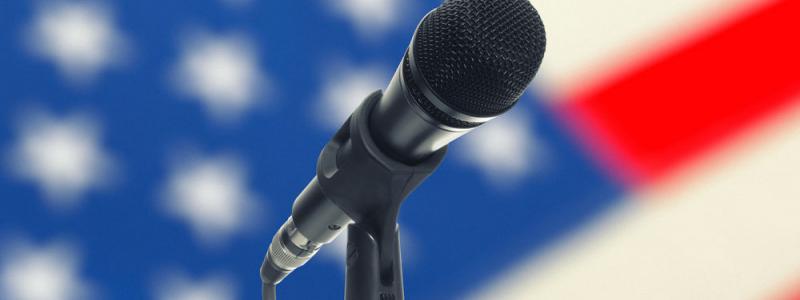Is Cable TV Stopping You From Watching the Debates?

With the season for the presidential primary being upon us, many will be surprised to find that a large number of the debates won't be aired on broadcast networks. Out of the 15 expected seasonal debates, 10 will only be able to be viewed via cable television.
Like Harvard University Law professor Susan Crawford, many people are scratching their heads over this move. Crawford recently published a piece in Medium that warned voters a cable subscription would practically be required to observe live debates. Additionally, she went on to label this new initiative as a "poll tax."
Many people are arching their eyebrows at this analogy; mainly because poll taxes were used in the mid 1900's as a malicious tool to keep the polls away from Latino and black voters. This outrageous fee was, of course, abolished in 1965 with the Voting Rights Act.
Fortunately, cable television is not the only avenue that Americans have for learning about presidential candidates and making informed voting decisions based on them. It is still possible for people to read up on the various presidential candidates, stream debates after they've already taken place, or even listen to debates/candidates on the radio. While it's wonderful when voters take the initiative to educate themselves on what each presidential candidate plans to offer, the most effective plan of action is to actually vote. Voting determines who is ultimately elected, and it also determines which policies are inevitably enforced and which are ignored.
As you likely know, poll taxes were hardly inconvenient. If a person really wanted to reach the polls, they could do so by their own means. However, poll taxes were a tool designed to oppress. They were intentionally implemented to separate groups from each other. The poll tax was actually a barrier that kept many people from exercising their rights within a democracy to express their opinions and have a say in their government.
Televised debates are, no doubt, an extremely significant portion of the American political dynamic. For people who have never even seen a political figure in the flesh before, televised debates serve as a great way to help spread political messages to every nook and cranny of the nation. With debates, people who can't actually attend presidential debates can make informed decisions about political figures and policies. This is why debates are critically important; as well as their ease of access.
Those who have the opportunity to watch live presidential candidate debates will always get the full, raw, and uncensored version of the exchange. This means it's easy to pick out who crumbles underneath heavy pressure and who remains unaffected by it. By watching live debates, it's easy for viewers to determine their own opinions about presidential candidates before the content is edited or receives heavy commentary or criticism.
As you would assume, those who can't view the live exchange must wait until it is either uploaded online or being subjected to punditry via social media and news sites.
It's likely very evident that many Americans will be at a significant disadvantage due to this new age "poll tax."
The cost of cable television subscriptions are currently soaring by a landslide in comparison to other similar services. In 2013, the average price per month for an expanded basic cable package (without taxes/fees) measured out to nearly $65. Prices for other similar services and goods have seen much less inflation. The drop in subscriptions has been largely attributed to the poor state of the economy as well as increasing interest in instant streaming services.
Related Blog Articles
- Vine Launches New Audio Editing, Music Discovery Features
- Samsung Is Readying To Launch A New Smartwatch, But Will It Be Enough To Challenge The Apple Watch?
- Pandora To Celebrate 10 Years By Turning Off Ads For 24 Hours
- Apple To Announce New iPads Next Week
- Over 225,000 Jailbroken iPhones Have Been Hacked, Per Cybersecurity Firm
- Is The iPhone Starting To Become Boring?
- What Can The World Expect On Apple’s September 9 Event?
- Apple’s Newest Releases And When They Will Be Available
- AppleCare+ Prices For iPhone 6s, iPhone 6s Plus Go Up
- How High is Your Cable Bill?


 Menu
Menu